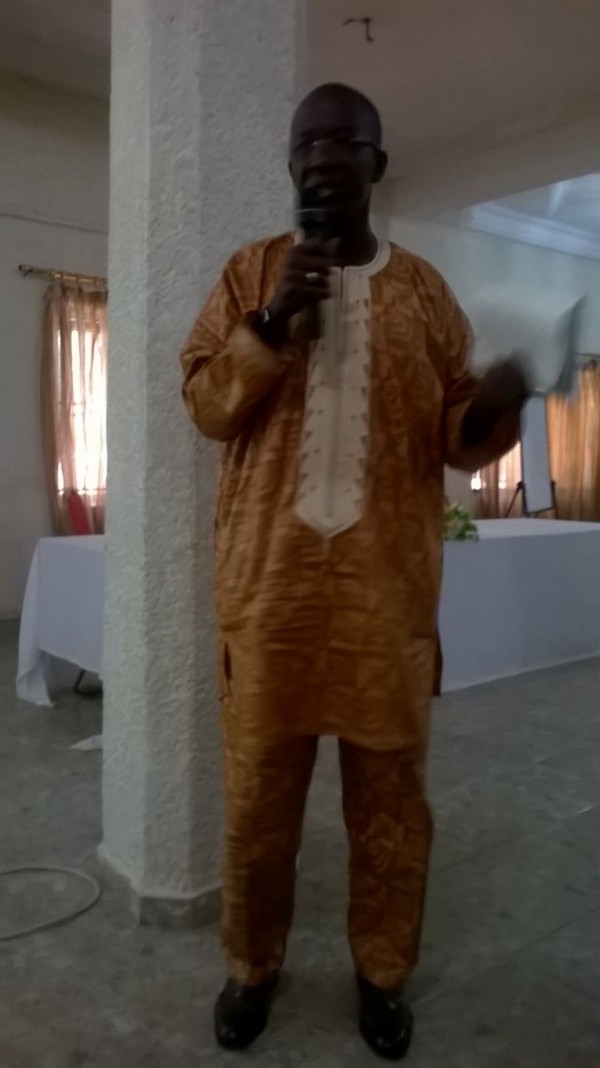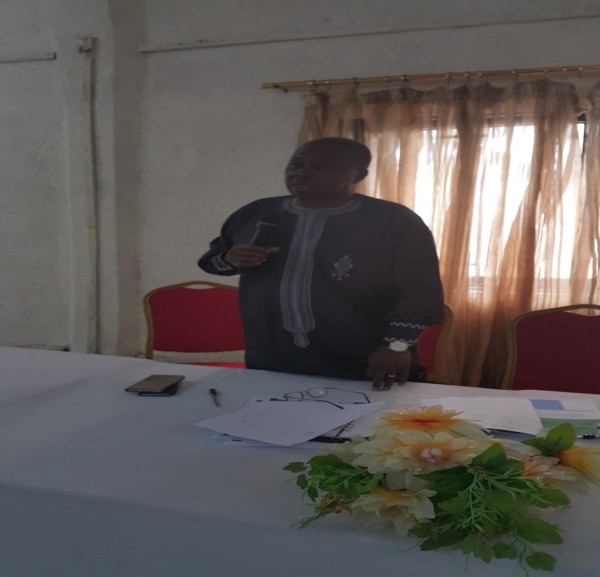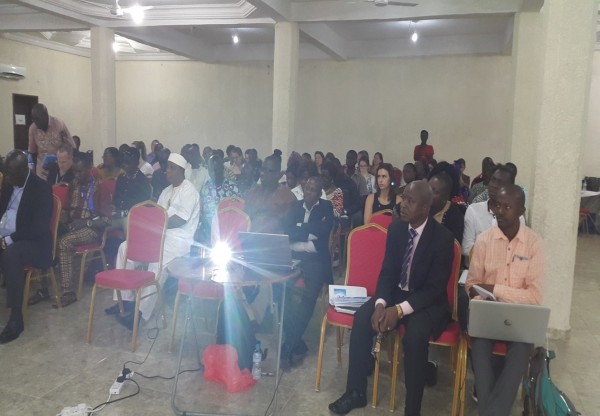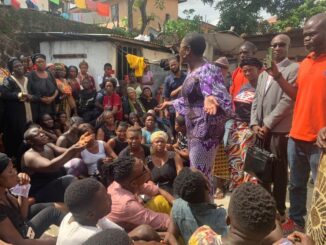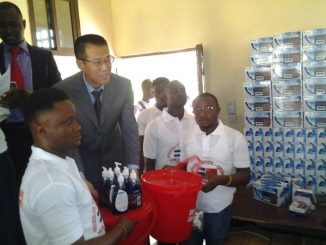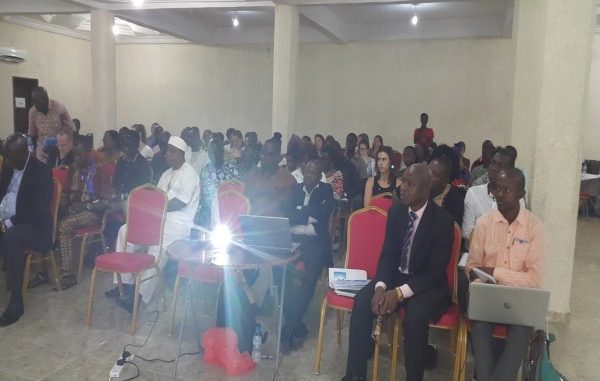
To mark, the little over one year of its existence, the Ministry of Health and Sanitation has taken stock of one of its many initiatives designed to improve the performance of the health sector; that is the Service Level Agreement (SLA).
At a well-attended ceremony held at the Hill Valley Guest House, Signal Hills, Freetown, on Friday July 8, 2016, the Minister of Health and sanitation told participants, mostly representatives of health implementing organizations that Sierra Leone is one of the countries with the highest number of Implementing Partners (IPs), commonly known as Non-Governmental Organizations (NGOs) particularly in the health sector. We also have a respectable presence of almost all the specialized United Nations (UN) Agencies. The
Health and Sanitation Minister Dr Abu Bakarr Fofanah delivering his speech
The Chief Medical Officer Dr Brima Kargbo making his statement
World Health Organization (WHO), United Nations Children’s Fund (UNICEF), the United Nations Population Fund (UNFPA) etc. have all been in this country for a long time and are all active in the health sector. In addition to these large number of implementing partners in the sector, we also have big donors like the DFID, USAID, EU, WB etc and year after year we hear of huge sums of moneys been spent by donors on the health sector.
The question in the minds of most Sierra Leoneans is this; despite the presence of these multitude of partners in the country, the active role they play in the health sector, and the huge resources that are been poured into the sector, why is it always that Serra Leone is perennially ranked at the bottom of the ladder each time the Human Development Index (HDI) Report is released mostly because of poor health outcomes such as high maternal and child death rates?
The Minister of Health and Sanitation, Dr Abu Bakarr Fofanah, likened the situation to a doctor treating a patient who is not responding to the treatment. He said either the diagnosis is wrong or the treatment is inappropriate; but definitely there is something that is not right. Under the circumstances, the doctor has to review the patient and the treatment. In the case of the non-responsiveness of the major health indicators to the health system we have to review the health system viz-a-viz our engagements with the player in the sector players, said the Minister.
A cross-section of the audience
The Minister went on to say that, in the course of the review, a number of issues were apparent. (1) The bulk of the resources for the health system from donors do not come through government structures but rather through non-government structures like NGOs even though it is the government that remains accountable to the people and bears the brunt of any non-performance by these third parties (2) there is no strong coordination of the activities of these Implementing Partners (3) there are lots of duplications in the activities of IPs (4) there are lot of inequities in the distribution of IPs with some regions of the country been over-subscribed while the others remain undersubscribed-Cherry Picking (5) there is no alignment of the activities of most of the IPs with the government priorities with IPs designing and implementing their own health plans (6) there are unacceptably high overhead costs by IPs leaving very little resources for direct implementation (7) there are no effective monitoring mechanisms in the MOHS to monitor the work of IPs (8) there are no systems in place in the MOHS to tell which IP is carrying out which activity in which part of the country.
In an effort to navigate around these issues and ensure that the people of this country receive the best out of the resources coming in country for and on their behalf, the Ministry of Health and Sanitation, in collaboration with the Ministry of Local Government and Rural Development, designed the Service Level Agreement between the Ministry of Health and Sanitation and Ministry of Local Government and Rural Development and the Health Implementing Partners. As with any new initiative, it was not easy for people to understand and accept the initiative. But the initiative received a major boost from His Excellency the President Dr Ernest Bai Koroma, who formally launched it in May last year. One year down the road we are not yet exactly where we want to be but we have made giant steps in the sense that we have a better idea of some of the issues that have stalled our progress over the years said the Minister. Today we know how much resources have been spent by donors on the health sector over a given period of time. We know which IP did what, where, when, and with how much resources. We know how which donor gave how much to which IP. We know how much went into overheads and how much went into direct implementation. We have a sense of whether we are having value for money or not.
During the meeting, it was disclosed that close USD100, 000,000 was spent on the health sector by donors through NGOs during the first 6-9 months post Ebola. The Major donors were USAID, DFID, KFW, Private donations and foundations. The Health and Sanitation Minister thanked all the partners (Donors and IPs) for their support to the initiative. He implored them to continue to work with the Government to make the SLA better and sustainable. It was agreed that in other to make the initiative sustainable, the Ministry of Health and Sanitation will introduce and administrative fee on every SLA processed. This Minister says will make the SLA self-sustainable. This initiative received wide support from both the Ministry of Health and Sanitation and the Ministry of Local Government and Rural Development. The partners on the other hand thanked His Excellency the President for putting the initiative at the heart of his recovery agenda. This they said is in line with his business approach in running the country. They pledge their continued support to the country particularly the health sector.

